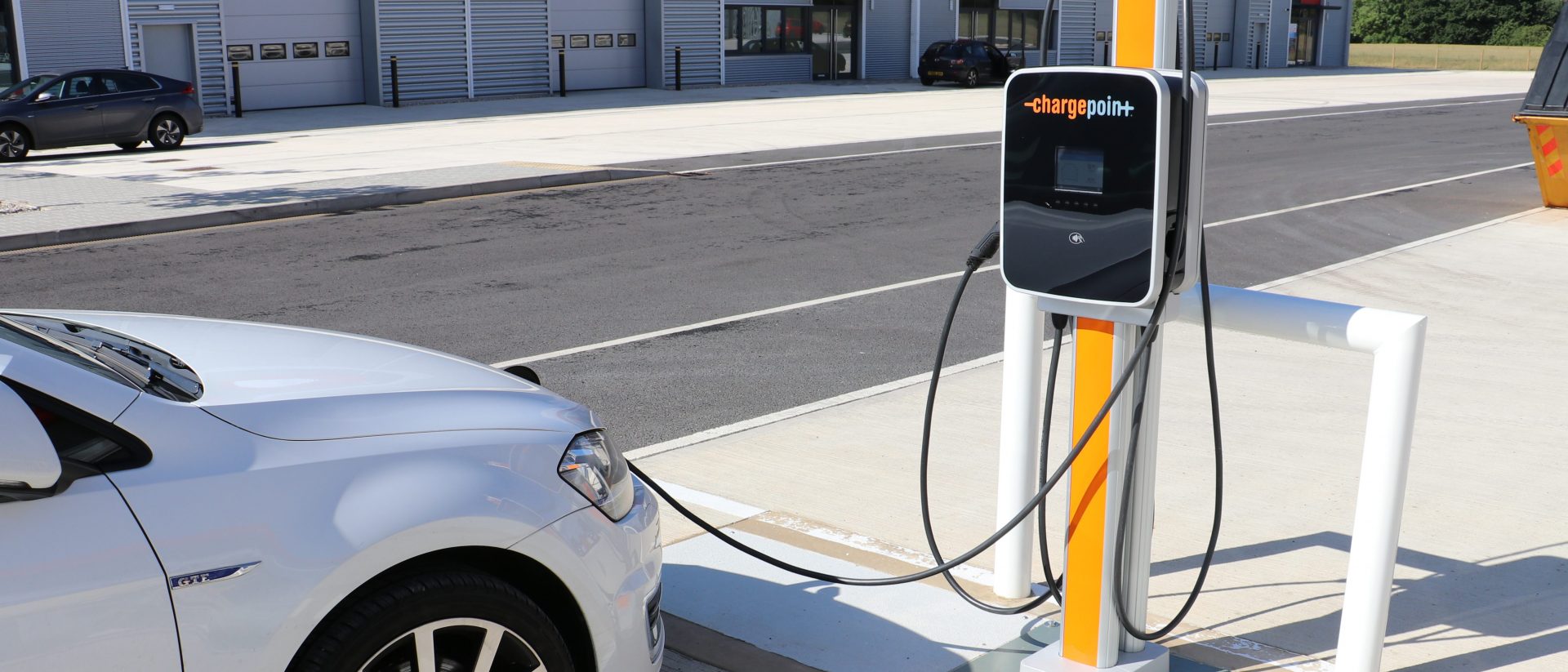Taking Charge: How Local Authorities can champion electric vehicles
A guide to tax, grants, and good practice for local government, developers, and individuals.
Executive Summary
The Government’s announcement of the ban of the sale of new purely diesel or petrol cars and vans by 2040 is a milestone event in the history of electric vehicles (EVs) in Britain. The UK ban, announced in summer 2017, comes amid record breaking electric car sales with all manufacturers bringing new EVs to the market over the next 2 years and strong forecasts for rapid future sales growth. This growth is significantly ahead of UK Government predictions only 2 years ago hence the speed of the changeover of transport.
Some in the industry believe car manufacturers could well be aiming to stop diesel car production by 2023 and petrol before 2030, well ahead of Government policy. Whether its 2023, 25, or 27, one thing is clear EVs are here to stay and all stakeholders need to have plans to cater for rapidly rising numbers in our towns and cities across the globe.
While the drivers may be global, the impacts will be local and UK Local Authorities will be on the front lines of managing this change. The expectation that a reliable, accessible, and affordable charging infrastructure will be in place is, in the eyes of much of the public, the responsibility of local government. We believe that councils need to be well prepared for this historic shift in transportation and look to benefit from the opportunities this will bring.
Much of the charging of EVs will happen at home or at daytime place of work, but those who park in streets will also need access to charging points within the towns and cities. Longer journeys will require EV charging stations at motorway and trunk road service stations. Councils could operate the charging infrastructure which will provide them with long term revenue, much in the same way that the oil companies built their fortunes with the support of a petrol station network in the past. To gain the full benefits of EVs the electricity used to charge the vehicles must be clean and that means from renewable sources.
Understanding the requirements of EVs, the anticipated growth, charging systems, payment and funding mechanisms, as well as learnings from best practice both in the UK and overseas is key to providing the solution and allowing Local Authorities (LA) to plan and roll-out solutions. This guide is designed to ensure Local Authorities are equipped to understand the support that is available to them and to seize the opportunities.
Is your Local Authority ready for the challenge?

